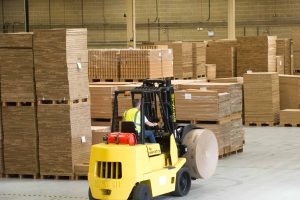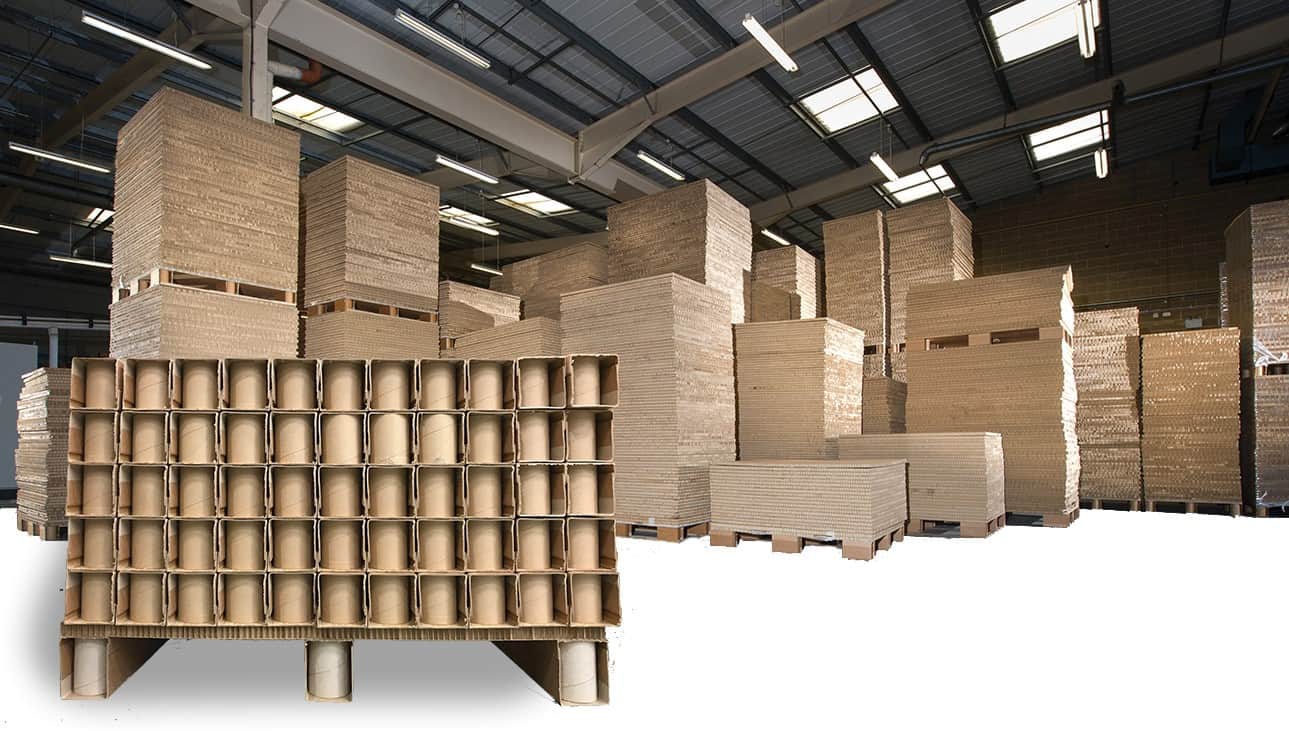Wood packaging can introduce harmful tree and forestry pests and diseases into countries. So if you’re importing or exporting any goods using wooden packaging materials (WPM) for example shipping crates, you need to adhere to ISPM 15 international standards as of January 2021. You must comply if you’re moving WPM between Great Britain and many other countries – including EU member states and Switzerland.
But what exactly is ISPM 15 and what do you need to do to comply? In this guide we’ll outline what the new regulations involve as well as discuss ways to avoid the hassle by switching to ISPM 15 exempt shipping crates and pallets.
What is ISPM 15?
ISPM 15 stands for International Standards for Phytosanitary Measures No. 15. It’s a regulation developed by the International Plant Protection Convention (IPPC) to help prevent the spread of pests and diseases through the wooden packaging materials that are used in international trade.
The main aim of the ISPM 15 is to ensure that wooden materials, for example pallets and crates, are treated to reduce the risk of contamination. The types of WPM that need to be treated include:
- Boxes
- Shipping crates
- Packing cases
- Pallets including box pallets and load boards
- Dunnage (loose wood that protects items and their packaging)
- Packing cases
The regulations don’t apply to processed, non solid wood products like plywood, or raw wood that’s less than 6mm or less in width. Wine barrels and gift boxes made from processed wood, sawdusts, shavings or cardboard packaging materials are also ISPM 15 exempt.
ISPM 15 for Importers
If you’re importing into the UK you need to make sure your packing service or freight forwarder uses wood packaging that meets ISPM 15 requirements. If you don’t, your goods could be held at the border. Your supplier or the Timber Packaging and Pallet Confederation (TIMCON) should be able to give you further advice.
ISPM for exporters
Not all countries require you to comply with ISPM 15. Here’s a list of countries that require ISPM 15 compliance. If you’re moving crates for export from Northern Ireland to the EU you don’t need to adhere to the ISPM 15 requirements, however if you’re moving goods using wooden packaging materials from GB to NI it will need to be treated.
Always check the specific requirements of your destination countries – and consult with your shipping partners in order to ensure smooth and hassle-free overseas shipments.
ISPM 15: What are the requirements?
To produce ISPM 15 compliant packaging you need to be a member of the UK Wood Packaging Material Marking Programme (UKWPMMP) and your premises must be assessed every 6 months.
To comply with the new regulations wooden shipping materials, e.g. shipping crates, must be heat treated. This involves heating them to 56 degrees C, for at least 30 continuous minutes throughout the entire profile of the wood including the core. It can also be microwaved.
Once treated all wooden packaging materials then need to be marked with the ISPM 15 logo, a unique number, and the ISO country code (assigned by the National Plant Protection Organisation) of the treatment provider.
What happens if I don’t comply with ISPM 15 regulations?
Companies that don’t comply risk having their shipments delayed or rejected at the destination country and you would have to find an alternative mode of transport for goods. In some cases consignments could even be destroyed. This could have big implications in terms of late deliveries to customers making non-compliance a costly mistake in the long-term.
PALLITE® sustainable shipping crates and pallets: Fully ISPM 15 exempt

PALLITE® honeycomb cardboard packaging includes pallets, layer pads and collapsible shipping crates. They offer you an alternative to traditional wooden packaging that ensures you avoid ISPM compliance issues.
- Super strong: PALLITE® products are made from strong and sturdy 25mm reinforced paper cardboard (Shipping crates can carry up to 750 Kg). Not only will our paper pallets fully protect your consignment, but they’re also 100% recyclable after use via composting. Our premium pallets can be reused making them even more environmentally friendly.
- No tools required: PALLITE® crates can be assembled in minutes and be folded flat for when not in use, saving you precious warehouse space. Since there are no nails, or splinters and no tools are required to make up the crates there’s a lower risk of mould developing than with wooden shipping crates. This reduces the risk of your consignments becoming contaminated.
- Lightweight shipping crates: Crates are up to 83% lighter than traditional shipping crates so you can reduce your overall consignment weight, and save money – whilst reducing your carbon emissions.
- Made in the UK: All PALLITE® products are UK manufactured. We offer short lead times on both UK and Euro sized cardboard pallets and if required, our expert CAD designers can design you fully customisable shipping crates with bespoke inserts to help protect your products in transit.
TIP: If you opt to have built in loading windows in your PALLITE® shipping crates you can speed up your loading times and help further costs further.
Find out more about PALLITE® sustainable pallets and crates
If you’re involved in international trade and want to avoid the complexities and the costs involved with becoming ISPM 15 compliant, PALLITE® cardboard sustainable shipping crates and pallets offer you a viable and environmentally friendly alternative.
If switching to ISPM 15 exempt packaging materials that also offer you a way to boost your green credentials sounds appealing, get in touch with us here at PALLITE® Group. We’d love to talk to you about the benefits of switching to sustainable PALLITE® packaging materials – or discuss creating a tailored solution just for you.
FAQ
| 1. What is ISPM 15 and why is it relevant to pallets and shipping crates? | ISPM 15 is an international phytosanitary measure that sets requirements for the treatment of wood packaging materials, such as pallets and shipping crates, to prevent the spread of pests and diseases across international borders. Compliance with ISPM 15 is necessary for safe international shipments. |
| 2. What are the key requirements and regulations outlined by ISPM 15? | Key requirements include heat treatment or fumigation of wood packaging materials, marking with the proper ISPM 15 stamp or mark, and adherence to specific dimensions and materials for pallets and crates to meet the standards set by the International Plant Protection Convention (IPPC). |
| 3. How can businesses ensure compliance with ISPM 15 when using pallets and shipping crates for international shipments? | Businesses can ensure compliance by sourcing pallets and shipping crates from suppliers who follow ISPM 15 guidelines, ensuring proper marking and documentation, and providing necessary certificates or proof of compliance when required by customs authorities. |
| 4. Are there any alternative options or exemptions available for businesses that cannot meet ISPM 15 requirements? | Alternative options include using plastic or alternative non-wood packaging materials that are exempt from ISPM 15 requirements. However, it is essential to check specific import regulations of the destination country to ensure compliance with their customs regulations. |
| 5. What are the potential consequences of non-compliance with ISPM 15 regulations? | Non-compliance with ISPM 15 regulations can result in customs delays, additional inspections, fines, rejections, or even the return or destruction of non-compliant wood packaging materials. It can significantly impact international shipping operations and cause financial and logistical issues. |
